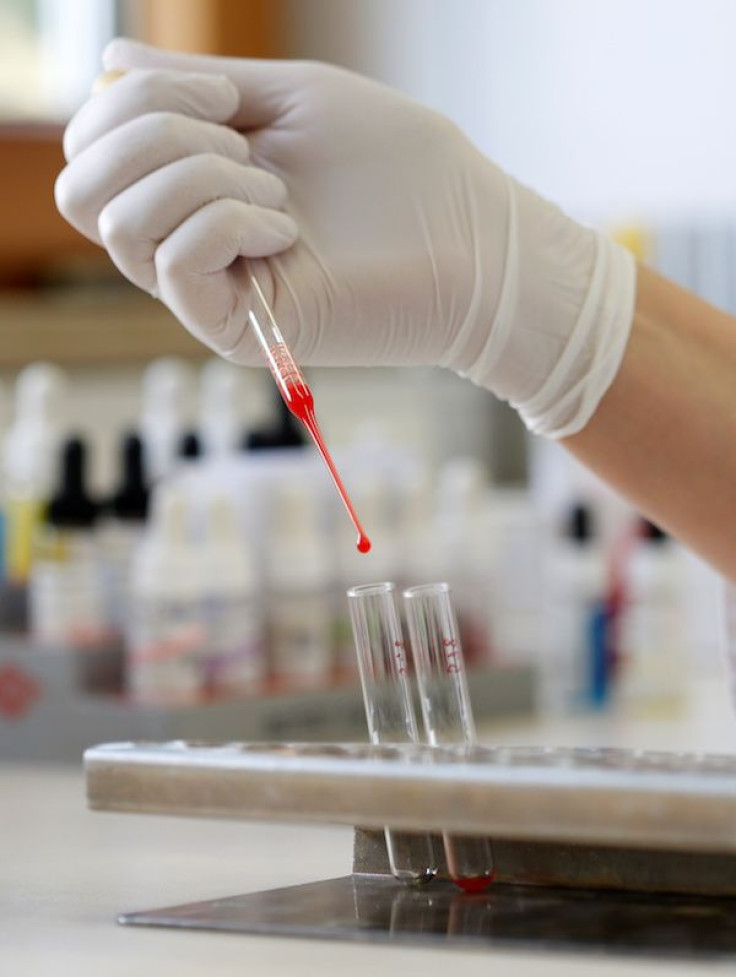New Alzheimer’s Blood Test Can Predict Onset Of Disease, Researchers Say

A newly developed blood test technology is said to be capable of predicting the onset of Alzheimer’s disease. The technology is claimed to produce similar diagnostic results as amyloid positron emission tomography scans.
On Tuesday, Korea Herald learned about a breakthrough in the the field of neurology that could help in diagnosing Alzheimer’s at an earlier time. South Korean researchers have apparently developed a novel blood testing technology that can predict the onset of the neurological disorder way before the first physical symptoms start to manifest.
The Seul National University research team’s invention could pave the way for early diagnosis of Alzheimer’s disease and better treatment planning. It could also end up to be a more affordable alternative than the pricey, high-end brain scans that are conventionally used for the detection and diagnosis of the disorder among living patients.
South Korea’s Ministry of Science and ICT says the new blood testing technology was found to be just as reliable as amyloid positron emission tomography scans in detecting Alzheimer’s. To be specific, the blood test is said to be 90 percent accurate in diagnosing the disease compared to a PET scan.
“While most Alzheimer’s diagnostics technologies identify the disease in patients with clearly visible symptoms, our technology can predict Alzheimer’s even when a person is not showing symptoms,” Seoul National University professor and lead researcher Mook In-hee said.
So how does this blood test work? Well, it basically relies on the detection of amyloid levels in the blood. For years, beta-amyloid levels in the bloodstream is considered to be an unstable biomarker of Alzheimer’s for blood typically breaks down proteins. However, the Korean research team found a way to prevent the amyloids from being broken down in the blood.
Because the presence of amyloids in the blood is stabilized, researchers were able to measure the substance and correlate it with amyloid plaque buildup in the brain, which is common in Alzheimer’s patients. The research team noted that through their study, they learned that the amyloid levels found in the blood matched the amyloid buildup detected using a PET scan 90 percent of the time. This means the new technology has a high accuracy rate when it comes to diagnosing the disorder.
The blood testing technology was licensed to Korean biotech company Medifron DBT for 130 million won or U.S. $115,200. SNU and Medifron DBT are currently collaborating to come up with a diagnostics kit and computing algorithm that could make the technology accessible to the healthcare community.
Alzheimer’s is a neurological disorder that causes memory loss and cognitive dementia. It is a progressive disease that is characterized by the death of brain cells. The main cause of this disorder is not known yet, and there’s no cure for it as well. In the U.S., around five and a half million are living with this condition.
Though hope seams bleak for Alzheimer’s patients, neuroscientist Joseph Jebelli predicts the condition would be preventable in the next 10 years.
“[The idea is to push] the disease back, by developing a drug that we can give to someone years before they start experiencing symptoms,” Jebelli recently told The New York Post. “It will change the course of the disease, pushing it back to the point where not only do they not experience any symptoms, but they’re dying naturally.”
Jebelli admits that drug trials made thus far have been disastrous, but he is still optimistic that scientists would soon find a way to prevent Alzheimer’s in the next decade or two. “What we’re doing now is actually targeting the underlying biology of the disease, instead of just targeting the symptoms, which is what scientists were doing [before],” he said. He also noted that scientists are also looking for a means to reverse Alzheimer’s symptoms that have already arisen, but this requires a lot more time and research.
© Copyright IBTimes 2024. All rights reserved.











